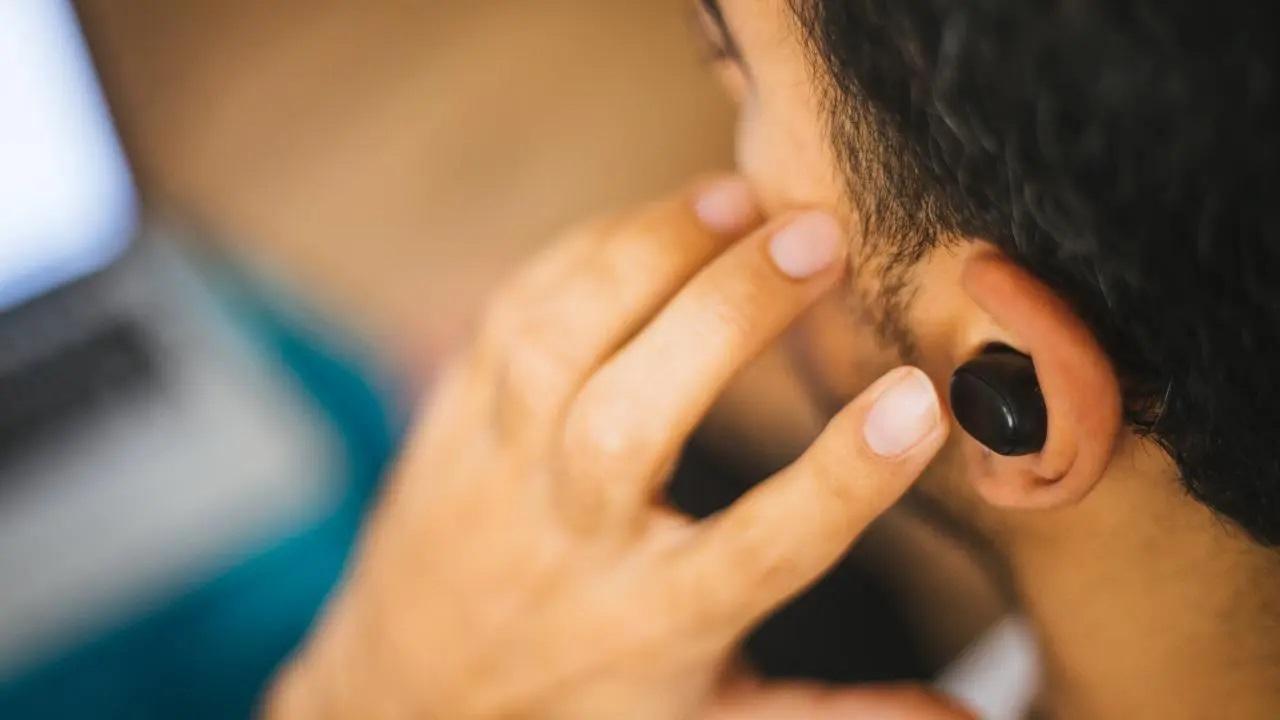Bacteria and germs present on headsets can pose a significant risk to hearing health. When headsets are not regularly cleaned, especially in shared usage scenarios, microbes can accumulate on the earpieces and other contact surfaces. This accumulation creates a pathway for potential infections and irritation in the ears

Image for representational purposes only. Photo Courtesy: iStock
Our phones have become universal companions, glued to our hands, and more importantly from the perspective of this discussion, pressed against our ears. While these devices offer countless benefits, their constant presence raises concerns about hygiene and potential health risks, particularly regarding hearing.
ADVERTISEMENT
Handsets, whether they're smartphones, landline phones or even headphones, are breeding grounds for bacteria and germs. Our hands which come into contact with myriad surfaces throughout the day, transfer these microorganisms onto our devices each time we pick them up. From there, bacteria like Staphylococcus aureus, Streptococcus, and even E. coli can flourish forming colonies that are easily transmitted to our ears during phone calls or prolonged use.
Impact of bacteria and germs on handsets
Bacteria and germs present on headsets can pose a significant risk to hearing health. When headsets are not regularly cleaned, especially in shared usage scenarios, microbes can accumulate on the earpieces and other contact surfaces. This accumulation creates a pathway for potential infections and irritation in the ears. As users wear these contaminated headsets over prolonged periods, the warmth and moisture in the ear create an ideal environment for the growth and proliferation of bacteria. This exacerbates the risk of ear-related issues such as otitis externa (swimmer's ear) or otitis media (middle ear infection). Moreover, the presence of harmful bacteria and germs can compromise the body's natural defenses, making the ear more susceptible to infections and other problems.
Prolonged exposure to unclean headsets
Prolonged exposure to unclean headsets significantly increases the likelihood of introducing harmful microorganisms into the ear canal. This heightens the risk of ear infections, which can negatively impact hearing. Ear infections may lead to inflammation and fluid buildup in the ear, affecting the delicate structures responsible for sound transmission. Recurrent infections or persistent irritation over time can contribute to hearing issues that could either be temporary or even permanent damage. Regular cleaning and disinfection of headsets are essential to prevent the buildup of bacteria and germs, reducing the risk of ear-related problems and preserving hearing health.
Impact of shared headsets
In shared headset settings, the risk of bacterial transmission escalates as each user introduces their unique microbiome to the device. This variety in microbial composition increases the likelihood of exposure to harmful bacteria and germs that individuals may not typically encounter potentially leading to more severe infections. The constant exchange of microbes on shared headsets creates an environment conducive to the proliferation and transfer of pathogenic bacteria and germs between users. Consequently, the risk of developing severe infections is heightened, as individuals may encounter strains of bacteria or germs to which they have limited immunity.
Health issues caused due to bacteria on headsets
In addition to the risk of ear infections, the presence of bacteria on headsets can exacerbate skin-related issues in and around the ears. Prolonged exposure to these microbes can lead to skin irritation or allergic reactions, compromising the overall health of the auditory system.
Individuals with compromised immune systems or pre-existing ear conditions are particularly vulnerable to the adverse effects of unclean headsets. For example, individuals with eczema or dermatitis may experience aggravated skin problems around the ears, which can impact the ear's natural defense mechanisms and make it more susceptible to infections.
The constant contact with bacteria-laden headsets can disrupt the delicate balance of the skin's microbiome, leading to inflammation and discomfort. Moreover, the warmth and moisture generated within the ear canal provide an ideal breeding ground for bacteria, exacerbating skin issues and increasing the risk of infections.
How to maintain hearing hygiene and health
To effectively mitigate the potential hearing issues stemming from unclean headsets, it's imperative to uphold stringent hygiene practices. This involves consistently cleaning and disinfecting headsets, along with refraining from sharing these devices. By doing so, the risk of bacterial transmission and subsequent ear health complications can be notably decreased. In addition, incorporating breaks during extended headset usage is essential. These pauses enable the ears to breathe and prevent excessive moisture buildup, fostering a healthier auditory environment. Ultimately, this approach helps reduce the likelihood of encountering hearing problems associated with unclean headsets.
(Dr Murarji Ghadge, Consultant ENT and Sleep Disorder Specialist, Ruby Hall Clinic Pune)
 Subscribe today by clicking the link and stay updated with the latest news!" Click here!
Subscribe today by clicking the link and stay updated with the latest news!" Click here!







